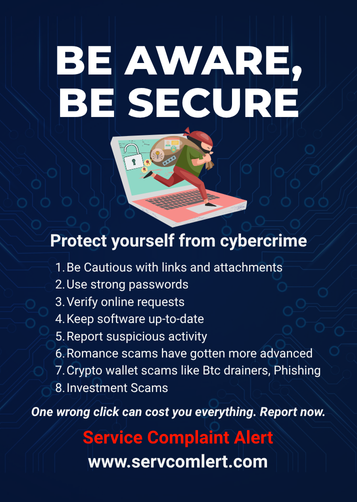The question might seem simple, but the answer often hides behind layers of emotion, trust, and a digital landscape where genuine connections coexist with sophisticated deception. Each year, thousands of people find themselves caught between a blossoming online relationship and a sudden request for money — a crossroads that can change their financial future, emotional well-being, and even their sense of identity. Search data reveals a sharp rise in queries like “is it safe to send money to someone you met online” and “how to tell if an online friend is scamming me,” underscoring the urgency of the conversation.
The reality is this: online relationships are no longer the niche domain of dating sites. They emerge through social media, professional networking platforms, gaming communities, and even hobby forums. And while many such connections are sincere, the anonymity of the internet also enables scammers to disguise themselves as caring friends, romantic partners, or even distressed family members. The result? An increasingly blurred line between genuine digital intimacy and calculated manipulation.
Why This Question Matters More Than Ever
In 2024 alone, the FBI’s Internet Crime Complaint Center reported over $1.3 billion lost to romance and trust-based scams. That’s not counting unreported cases, which experts estimate could double or triple the actual figure. The scam formats evolve constantly: one month it’s a fabricated emergency, the next it’s a cryptocurrency investment “opportunity” that seems legitimate but drains funds into untraceable wallets.
For victims, the stakes are more than financial. Sending money to someone you’ve never met can set off a cascade of consequences: deeper emotional entanglement, identity theft risk, blackmail, or continued targeting by other fraud networks. On the flip side, declining a genuine request from someone in real distress is emotionally challenging, particularly if you’ve built months of trust and shared vulnerability.
How Scammers Engineer Trust
Understanding the anatomy of these scams is the first step to recognizing when your trust is being exploited. Online fraudsters rarely start with a request for money. Instead, they invest weeks — sometimes months — into building rapport. They share personal stories, mirror your interests, and create an emotional dependency.
Many adopt a consistent communication schedule, responding quickly to messages, checking in regularly, and expressing what feels like genuine concern. Some even send small gifts or help you with information before introducing a financial angle. By the time the request comes — whether for emergency medical bills, travel expenses to meet you, or seed capital for a “joint investment” — it feels like a natural progression of your bond.
One growing tactic is the “pig butchering” scam, where the target is slowly “fattened” with trust before being “slaughtered” financially. In these schemes, scammers present themselves as successful investors, often in cryptocurrency, and encourage victims to join them. The platforms they use may look legitimate, but the funds are never recoverable. Here, tools like Voyallet — which offer secure storage and verified platforms for digital assets — can help you cross-check the legitimacy of investment opportunities before you commit funds.
Red Flags You Should Never Ignore
Even the most cautious person can be drawn into a scam if they’re not aware of certain universal warning signs. Here are some of the most common:
- They avoid video calls or in-person meetings despite long-term communication.
- Their stories contain inconsistencies, or details change over time.
- Urgent financial needs arise suddenly — often tied to emotional appeals like illness, accidents, or legal trouble.
- They pressure you for secrecy, claiming that others “won’t understand” your relationship.
- They introduce investment opportunities with promises of unusually high returns or “guaranteed” profits.
Recognizing these signs early gives you the power to step back before emotional commitment clouds judgment.
The Psychology Behind Sending Money
It’s easy to assume that only the naïve fall for such requests. In truth, people from all walks of life — including highly educated professionals — have been targeted and manipulated. The psychological factors include:
- Reciprocity bias: Feeling compelled to give back after someone has shown kindness.
- Sunk cost fallacy: Believing that you’ve already invested too much emotionally to walk away.
- Social proof: Being shown fabricated evidence that others trust this person.
- Hope: Believing that this could be “the one” or that you’re helping someone in genuine need.
These cognitive biases work hand in hand with sophisticated emotional manipulation, making the decision feel reasonable in the moment.
When the Request Involves Cryptocurrency
Digital currencies have become a preferred medium for online scammers because transactions are irreversible, anonymous, and global. A scammer asking for crypto can claim they “can’t receive bank transfers in their country” or that crypto is the “fastest” way to send help.
If you find yourself in this situation, pause before you send anything. Verify the recipient through independent channels. Use trusted platforms — some, like Voyallet, include built-in verification tools and cold storage options that reduce the risk of sending funds to fraudulent addresses. Keep in mind: once crypto is sent, recovery is often impossible without immediate expert intervention.
Stories from the Field
“I didn’t see it as sending money to a stranger,” says Elena, a 42-year-old teacher from Melbourne. “I saw it as helping the man I was going to marry. We’d spoken every night for six months. When he said his business deal fell through and he needed $5,000 to cover legal fees, it seemed only natural to help. I didn’t know until later that his photos were stolen from a real estate agent in Canada.”
Similarly, Jerome, a 58-year-old engineer, was drawn into a “crypto mentorship” by someone he met through LinkedIn. The mentor introduced him to what appeared to be a legitimate trading app. Over three months, Jerome transferred $27,000 into the platform — only to find withdrawals blocked until he paid “tax clearance” fees. By then, the mentor had vanished, and the app had gone offline.
Actionable Steps Before You Decide
If you’re considering sending money to someone you met online — whether for love, friendship, or business — take these steps first:
- Verify their identity independently through reverse image searches, public records, or official databases.
- Speak to trusted friends or family about the request, even if you feel embarrassed.
- Refuse secrecy — a genuine person won’t insist you keep their financial trouble hidden.
- Check financial claims through third-party sources, especially if they involve investments.
- Use secure channels for any legitimate transaction, ensuring you have a record of the transfer.
- Trust your discomfort — if something feels off, it usually is.
The Bottom Line
So, should you ever send money to someone you met online? In almost all cases, the answer is no — at least not until you’ve verified their identity beyond doubt, understood the risks, and consulted with someone you trust. Even then, proceed with caution.
Genuine relationships, whether romantic or platonic, will withstand the boundaries you set to protect yourself. Scammers, on the other hand, will see your refusal as an obstacle and may disappear — saving you far more than money in the long run.
The digital age offers unprecedented opportunities to connect, but it also demands a new kind of vigilance. Protect your heart, but protect your wallet, too.


















